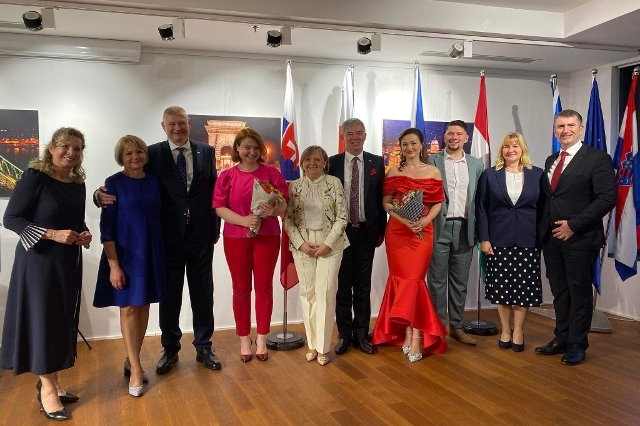
Ministr Zaorálek pro Financial Times
09.06.2016 / 13:53 | Aktualizováno: 09.06.2016 / 14:52
Rozhovor s ministrem zahraničí Lubomírem Zaorálkem pro Financial Times ze dne 9.6.2016.
Czech Republic accuses Putin of backing EU’s rightwing
Henry Foy in Prague
Czech foreign minister Lubomir Zaoralek says nationalist and Eurosceptic movements play into Russia’s strategy of weakening Europe
Russian President Vladimir Putin is trying to “divide and conquer” the EU by supporting rightwing populist politicians across the bloc, the Czech Republic has warned.
EU leaders are facing growing threats to the bloc’s political unity, with Britain voting this month on whether to leave and rising public anger at Brussels. Against this backdrop, far-right parties have been making gains in a number of countries.
Such nationalist and Eurosceptic movements play into Mr Putin’s strategy of weakening the continent, the Czech Republic’s foreign minister Lubomir Zaoralek has said.
“It is regularly discussed. We have no doubt Russia is finding ways to finance this,” Mr Zaoralek told the Financial Times in an interview. “Russia is using our weakness . . . We must find a way to respond.”
“This rightwing populism is very dangerous because it could really destroy the European mainstream. The long-term Russian strategy is divide and conquer,” he added.
Critics of Mr Putin have long suspected that the Kremlin supports Eurosceptic parties in order to weaken the EU. Mr Zaoralek, who declined to provide evidence of funding streams, said Mr Putin’s administration was supporting Hungary’s rightwing Jobbik party and France’s far-right National Front.
The Kremlin did not immediately respond to a request for comment on Mr Zaoralek’s remarks. Moscow has denied past allegations of direct financial assistance for far-right European parties and politicians.
The National Front, led by Marine Le Pen, stated in 2014 that it had received a loan from a Russian bank. No evidence has been found to support longstanding accusations that Jobbik relies on Russian financing.
Nationalism has been rising across the EU this year — a far-right candidate reached the run-off stage in last month’s Austrian presidential election and the neo-Nazi People’s party won 14 seats in Slovakia’s parliament in March. German Chancellor Angela Merkel’s centre-right bloc has lost support to the rightwing Alternative for Germany.
The Czech Republic, which was ruled by a Moscow-controlled communist regime until 1989, has no prominent far-right political movements. But Czech President Milos Zeman has criticised the EU’s sanctions against Russia over its annexation of Crimea and has been accused of holding pro-Putin views.
Mr Zaoralek warned that Britain’s June 23 vote on its EU membership also risked weakening European integration and playing into Mr Putin’s hands. “This discontent with the EU in Britain . . . is a big chance for Russia to be more powerful in Europe,” he said, citing a past conversation with Mr Putin where the Russian leader warned him to “beware Brussels”.
“If the institutions are weak, then Putin will be able to take advantage of them,” added Mr Zaoralek.
Many EU officials fear other countries may follow the UK’s example and hold their own referendums. The Netherland’s Eurosceptic opposition PVV party, which is leading in national opinion polls ahead of parliamentary elections in March next year, plans to call for a vote on the country’s membership if Britain opts to leave.
“I am very afraid of this tendency towards further fragmentation,” said Mr Zaoralek. “We must do what we can do to avert the danger of repetition from the 1930s . . . The European Union is something like a guarantee to not repeat the experience of isolation and loneliness. We must keep this union together.”
Ms Le Pen’s National Front stated in December 2014 that it had received a €9m loan from First Czech-Russian Bank, a private Russian-owned bank. The same year, Ms Le Pen publicly supported Russia’s annexation of Crimea, the move at the heart of Moscow’s soured relations with Europe.
In February this year, Wallerand de Saint Just, the National Front’s treasurer, said the party was seeking a €27m loan from foreign banks including Russian ones.






